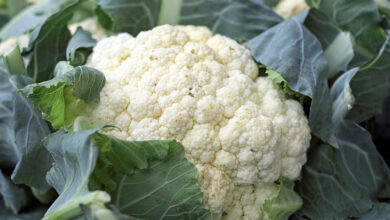Cabbage: Health Benefits And Side Effects

History of Cabbage
Cabbage was very popular with many, but it was most respected among the people of ancient Rome.
Cabbage was also known in Ancient Egypt and Ancient Greece, but only in the 6th-7th centuries BC. it has gained wide recognition.
The name of cabbage comes from the Latin word “kaput” – translated as “head”.
The Composition And Calorie Content of Cabbage
| Calories per 100 g | 27 kcal |
| Squirrels | 1.8 g |
| Fats | 0.1 g |
| Carbohydrates | 4.7 g |
The Benefits Of Cabbage
Cabbage is rich in trace elements and vitamins. It contains:
- Calcium, which strengthens teeth and bones;
- Nicotinic acid, or PP, is responsible for the release of energy during the processing of carbohydrates and fats;
- B vitamins (B1, B2, B6) are responsible for the health and beauty of hair, nails and skin, regulate the activity of the nervous system;
- Potassium, which is necessary for the human body for the full activity of the heart muscle.
Cabbage contains all the useful substances necessary for a full human life.
It has a beneficial effect on metabolic processes, has analgesic and anti-inflammatory effects.
The dietary fibre found in cabbage perfectly removes cholesterol from the human body.
Also, taking cabbage helps with diseases of the heart and kidneys, gastritis with low acidity and constipation. It strengthens the immune system and has a cleansing effect on the body.
“Cabbage is found in almost all food systems and is rightfully considered a dietary product. Any type of cabbage contains less than 30 kcal per 100 grams.
The dietary fibre and fibre contained in cabbage cleanse the body of toxins and toxins. And vitamins of groups A, B, C, P, U, which are contained in cabbage, ensure the proper functioning of the whole organism, have a positive effect on the skin, nails and hair.
In general, cabbage contributes to the normalization of the digestive tract, cleansing the body of toxins and toxins, and lowering cholesterol levels.
You can use cabbage in any form and in different variations. For example, a salad of fresh or sauerkraut in combination with other vegetables, boiled or stewed as part of the first or second courses.
The Side Effects Of Cabbage
It is worth monitoring the rate of use of this product, since if it is violated, bloating, diarrhea and nausea are possible. Also, it should not be used by people with diseases of the thyroid gland, kidneys and liver.
The Use Of Cabbage In Medicine
Cabbage has a wide range of uses in folk medicine, where its leaves or juice are most commonly used. In ancient times, healers used cabbage to heal wounds and deep cuts.
Currently, cabbage can serve as an additional source of nutrients and an adjuvant in the treatment of certain diseases. Due to its properties, it relieves symptoms and improves the general condition of the body. Most often it is used for headaches, sore throats, mastopathy, burns and arthrosis of the knee joint.




